Since the time of the Buddha 2,500 years ago, meditation retreat has been a central part of the Buddhist path. Retreat offers you a respite from your usual daily routine so that you may dive into a depth of practice that is only possible while away from the hustle and bustle of everyday life.
Tara Mandala residential retreats combine a deep experience of Buddhist practice in pristine nature with the calming and nourishing atmosphere of silence (either full or partial silence depending on the retreat). Careful guidance and training is offered for beginner’s meditation techniques all the way to advanced practices. Daily teachings and group practice offer you support for discovering inner understanding and freedom. Our retreats are suitable for both new and experienced students of meditation.
In a chaotic and stressful world, Tara Mandala offers refuge and renewal in a comfortable relaxing environment.
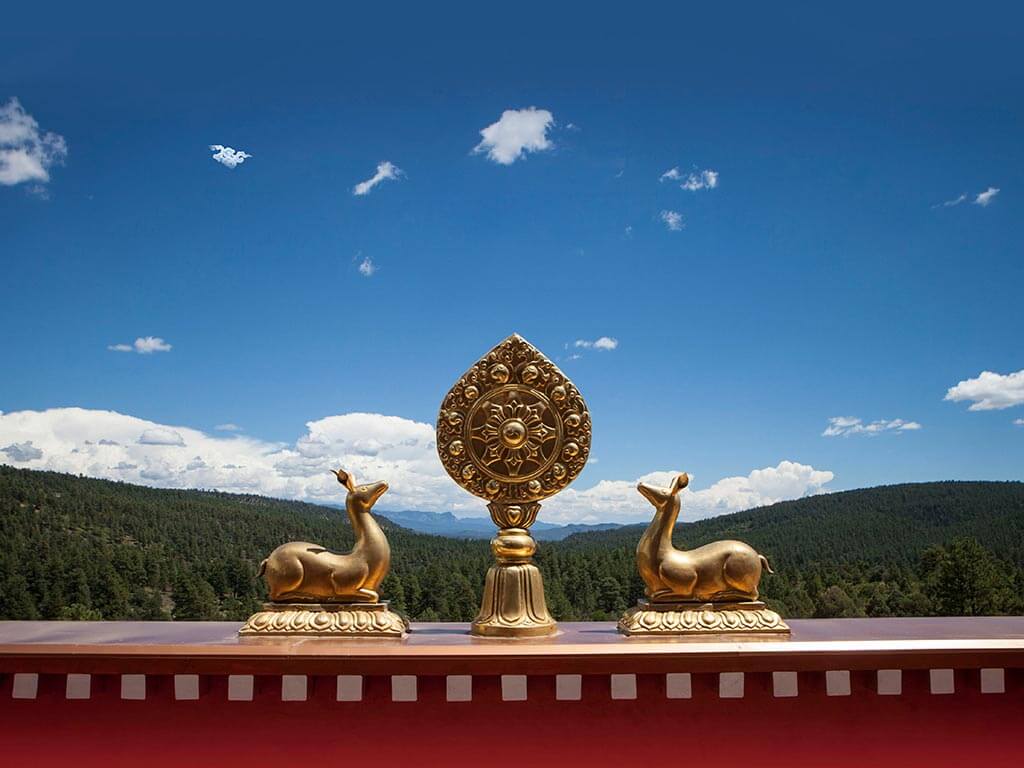
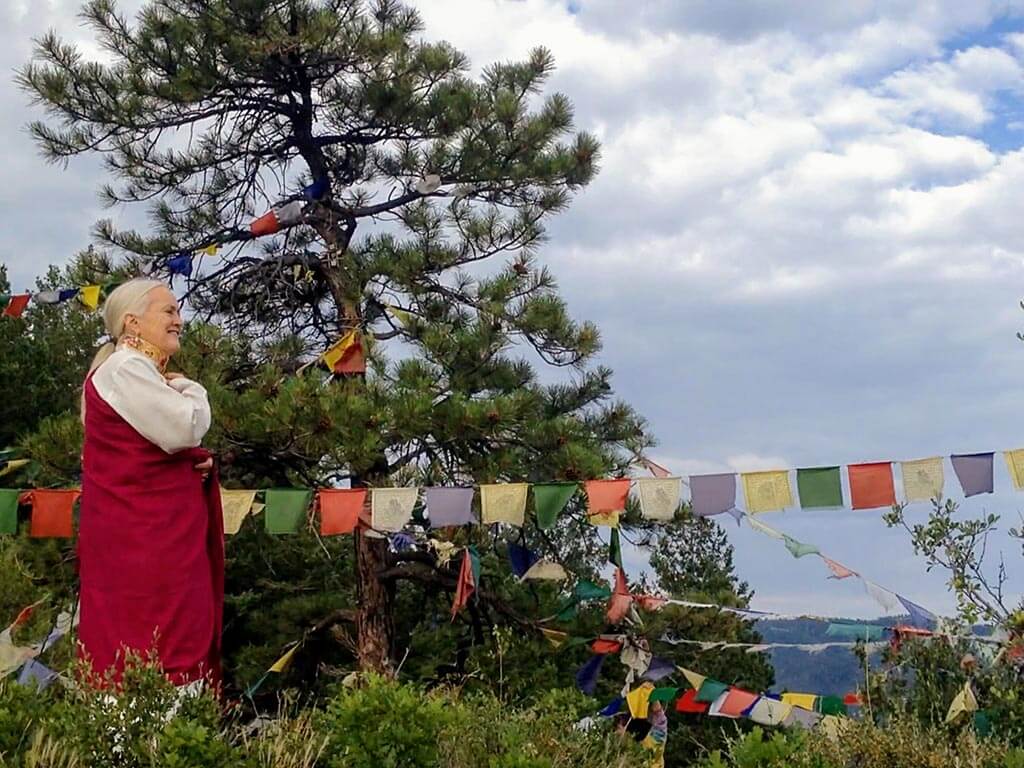 Photo credit: Clinton Spence
Photo credit: Clinton SpenceWhy Come to a Tara Mandala Retreat?
Retreat allows us to slow down, pull back, get inspired, find our community, and ultimately awaken to who we really are. Retreat comes from the Latin verb “to pull back.” When in retreat, we withdraw from our regular life, pulling in all the energy that is otherwise spread out in multiple directions. We gather our forces to focus them on something that can help us grow. From this place, we get a new perspective, we regroup and re-energize. We find inspiration that can be put into action and transform the world around us.
On retreat we become more spacious. We step out of our structured day-to-day routine into a space where we have the time to connect with nature, with ourselves. The vastness of the beautiful Colorado skies is a reminder of the importance of space in our lives, space between thoughts, space to allow creative inspiration to arise, space in our daily routine. Retreats at Tara Mandala offer a safe space where we can unlock self-exploration and growth, allowing us to remember who we are at our core.
On retreat we become inspired. Inspiration translates as “to breathe into.” On retreat we breathe vitality into our life and connect to our inspiration, our genius. The natural beauty of the land brings about a shift of perspective whereby our practice and insight may ripen. We establish new and healthier routines and practices so our lives can continue to be re-energized, happier and clearer. In retreat, by cultivating the power of awareness, clarity and kindness, we discover our path to liberation, inner freedom and a fulfilled heart.
Types of Meditation
Various kinds of meditation are supported and taught in Tara Mandala retreats. They span the three Yanas (Vehicles) of Buddhism, from the early and middle phase of the Sutrayana (including Mahayana) to the latter development of the Vajrayana teachings.
We offer mindfulness based practices such as sitting and walking meditation, compassion meditation such as Metta (Loving-kindness) and Tonglen (Sending & Receiving), as well as Feeding Your Demons®, a practice developed by Lama Tsultrim Allione that helps us heal the unintegrated aspects of ourselves.
We offer Vajrayana (Buddhist Tantra) practices such as Green Tara, Chöd, that involve sound, visualization, mantra, and ritual practices. And finally we offer retreats on Dzogchen (Great Perfection) and Mahamudra (Great Seal) practices that are considered the pinnacle of Tibetan Buddhist teachings.
The beauty of these practices is that there are entry points for all of us. Their variety gives us the chance to feel what best suites our disposition.The Buddha said that however many people there are on the earth, there are the same number of practices. At Tara Mandala we value both the downward journey of healing and cultivating emotional balance and the upward journey of awakening to our own true nature, full liberation. In essence these are not two, but on the relative level both need to happen alongside one another.
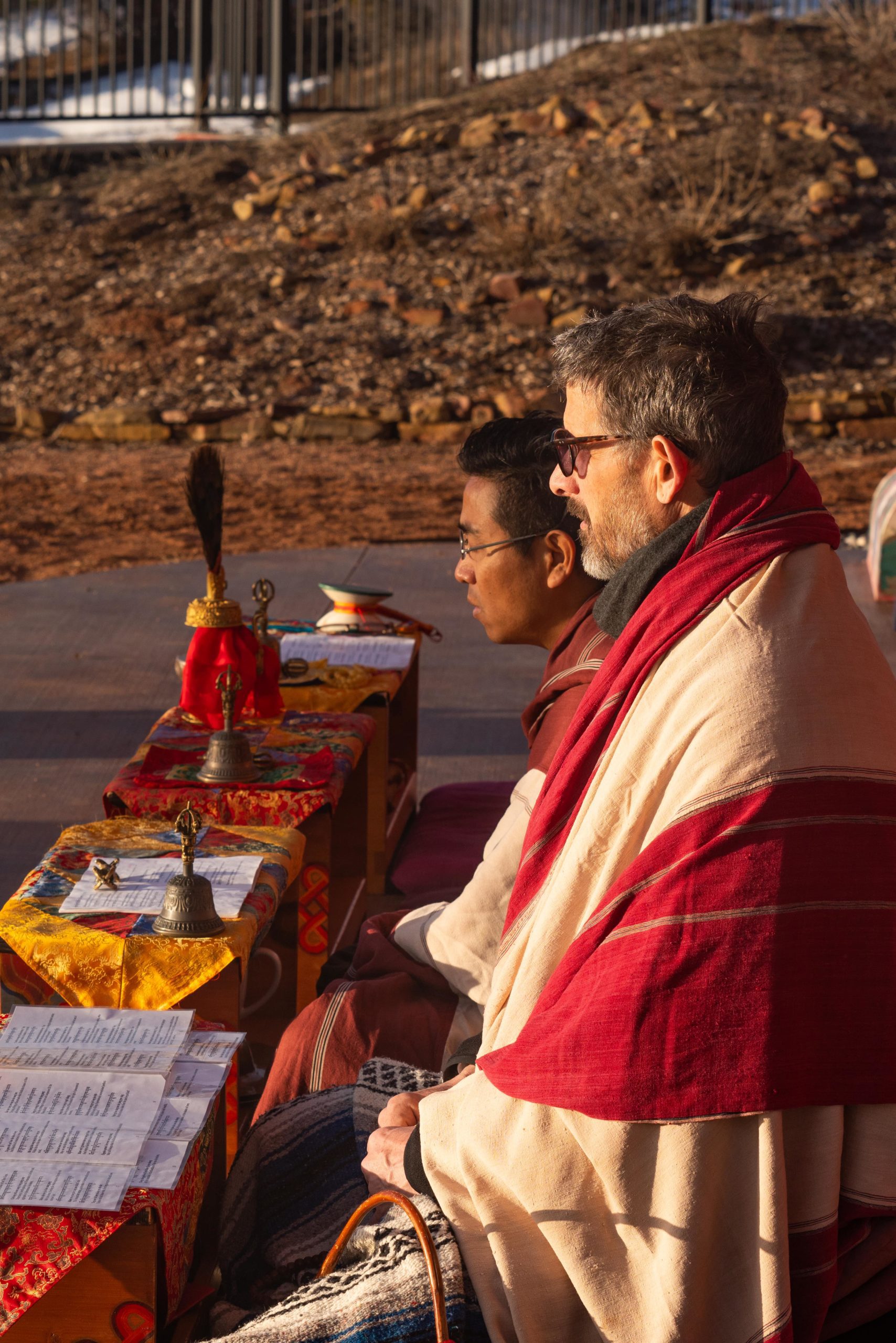
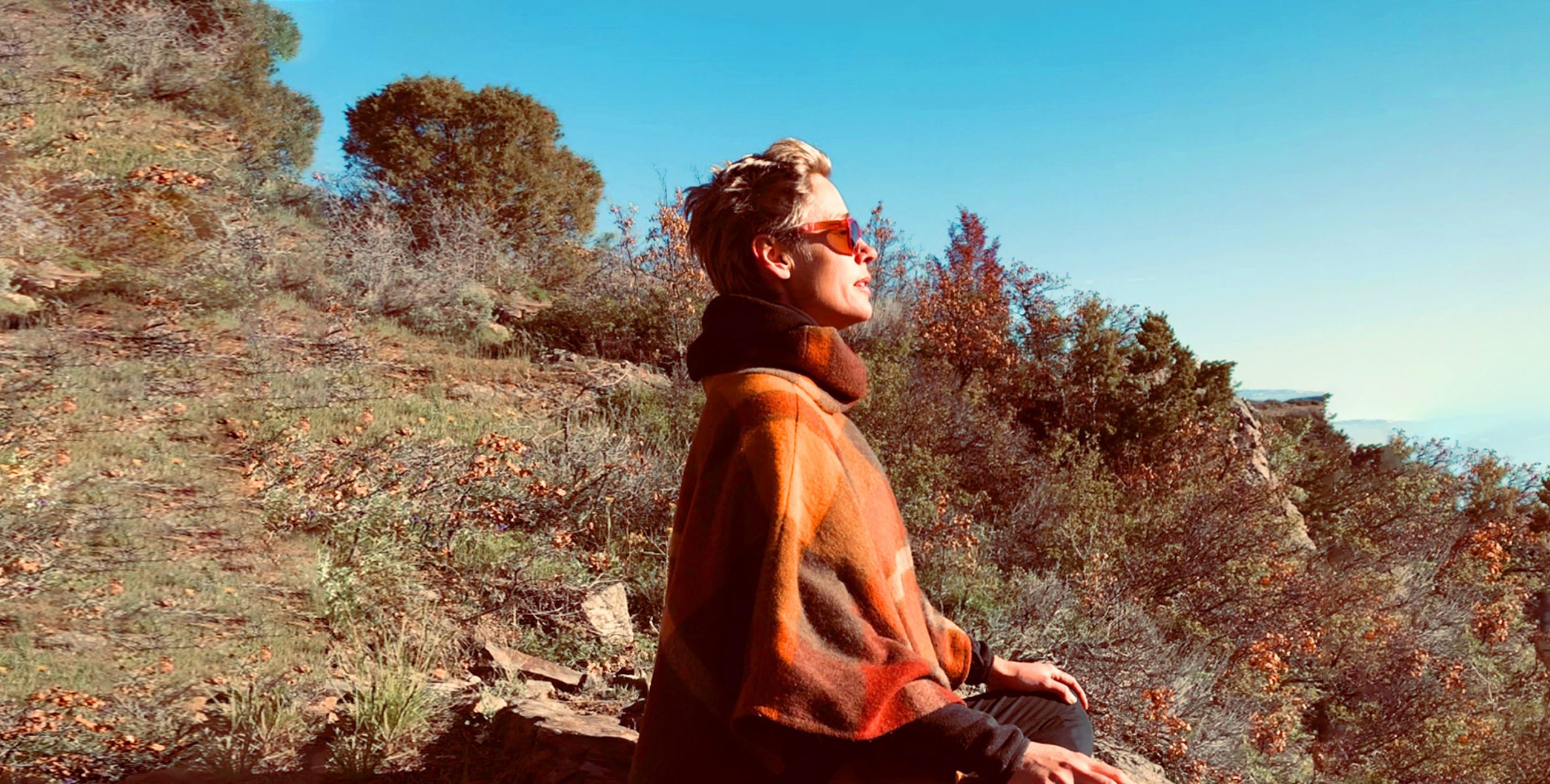
Sitting Meditation
Sitting meditation lies at the heart of retreat. In sitting practice, silence and stillness develop, concentration deepens, and awareness expands. The training of the heart brings kindness and compassion for all that arises. In sitting we can find for ourselves the wisdom and freedom discovered by the Buddha. At Tara Mandala, beginning meditators are encouraged to use the breath as a focus for mindfulness. The arising and passing of breath shows us in a direct way the universal truth of impermanence. After an inner calm and steadiness are established through breathing, the meditation is systematically opened to include mindfulness of all experiences, external and internal, of body sensations and emotions, of thoughts and the nature of mind itself.
Walking Meditation
Walking gracefully and wisely on the earth is one of the great Buddhist meditative practices. On retreat, periods of walking meditation alternate with periods of sitting meditation. Just as in sitting meditation, where attention is brought to the rhythmic pattern of breathing, in walking meditation, mindfulness is cultivated by resting the attention on sensations of the body as one walks. In walking meditation we become aware in the midst of activity. Retreatants at Tara Mandala are also encouraged to hike more leisurely to cultivate mindfulness and deeper connection with nature.
Sitting and Walking Meditation are taught in our Sutrayana retreat each summer and our Intro to Meditation courses throughout the year.
See the retreat calendar to register »
Vajrayana – Tantric Meditation, Visualization & Ritual
Vajrayana practices taught at Tara Mandala include practices that incorporate mantras (sacred sounds), dharanis (concentrations), mudras (hand gestures), mandalas (sacred geometric patterns) and the visualization of deities and Buddhas.
In Vajrayana, one receives empowerment (Tibetan: wang) from a qualified spiritual teacher in order to engage in Tantric practices. In Vajrayana, it is said that tantric practice provides an accelerated path to enlightenment which is faster than other paths.
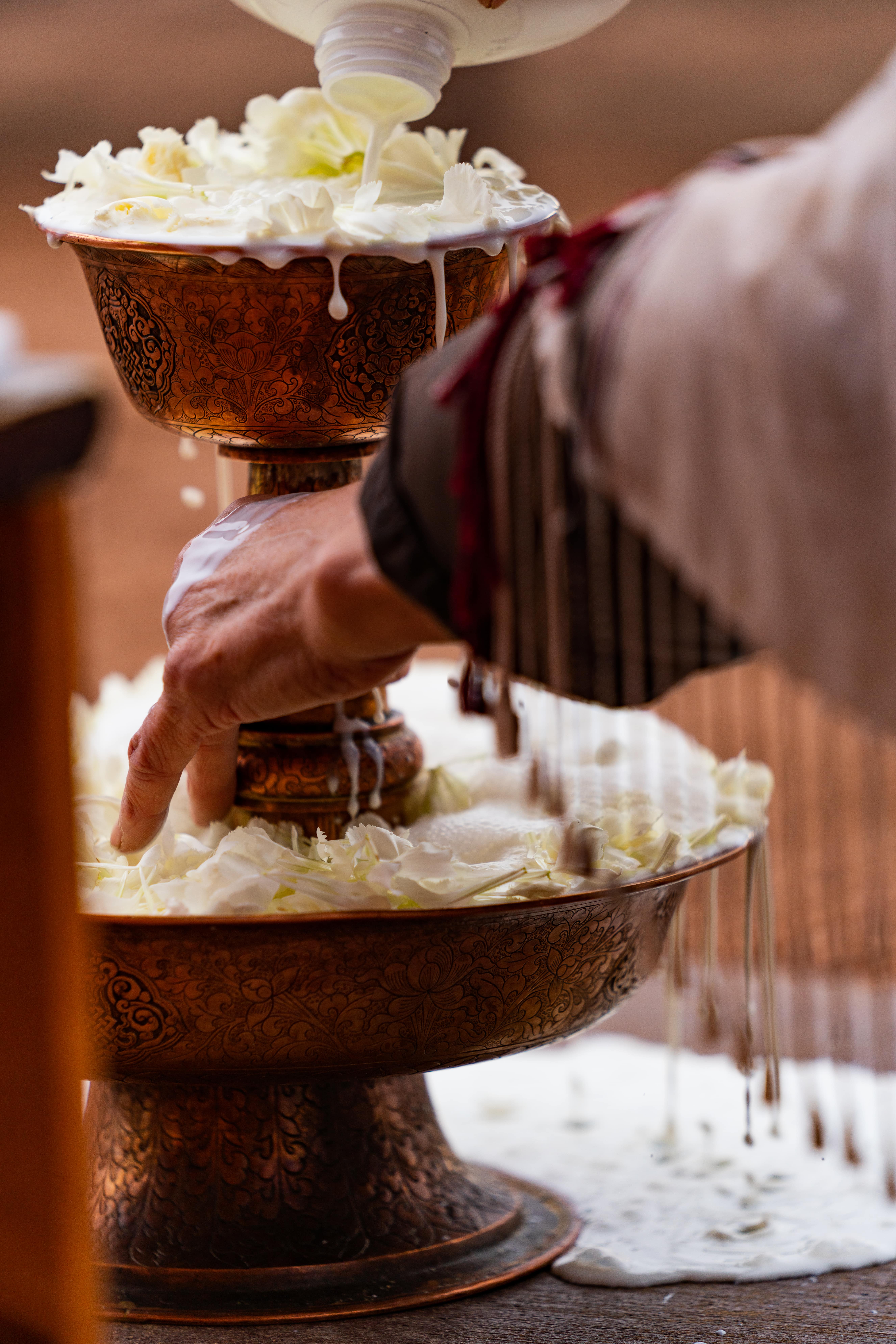
Mindful Eating
An awareness of food, and the mindful understanding of the entire process of nourishment and eating is included in the practice at retreats. Retreatants are encouraged to bring the same calm, focused attention to eating as is brought to sitting and walking. Mindful eating is a wonderful context for the arising of insights. The simple, mindful eating connects us to the truth of the interconnectedness of all existence. On retreat, carefully prepared vegetarian meals are served. Retreatants may assist the cooks in meal preparation and clean up through work meditations.
Karma Yoga / Work Meditation
Work meditation or Karma Yoga is an important part of the retreat practice. Through it we learn how to bring the spirit of wakefulness to the activities of our life. Karma yoga also supports the community and assures the smooth running of the retreat. At retreat check-in, retreatants are assigned a Karma Yoga assignment (such as helping in the kitchen during preparation of meals, cleaning up afterwards, tidying up the dining room, etc). The daily completion of the task is understood to be part of the continuous cultivation of mindfulness.
Dharma Talks
Dharma talks are the vocal heart of a retreat. Each day the teachers present a different set of teachings from the central practices of Buddhism, offering ways to apply them to our own experience. Sometimes the talks focus on retreat practice, and sometimes they offer teachings for wise living in the world. In the talks the teachers may speak about the nature of wisdom or address Right Livelihood, explain the Four Foundations of Mindfulness, explore the Five Hindrances, speak of loving-kindness and equanimity, or tell stories from personal experience that help illuminate practice. The dharma talks are not Buddhist tenets to be believed, but are spiritual principles offered for students to consider and use in ways that bring benefit to their daily lives.
Practice Meetings
One of the most valued parts of intensive retreats is the opportunity to speak intimately with the teachers about one’s own inner life. Teachers hold individual and small group meetings with retreatants on a regular basis to answer questions, discuss problems, give guidance and explain meditation practices more fully. Students are also welcome to consult with teachers at any time during a retreat as need arises. This teacher support facilitates a deepening of the student’s meditation practice and encourages further development of the student’s understanding.

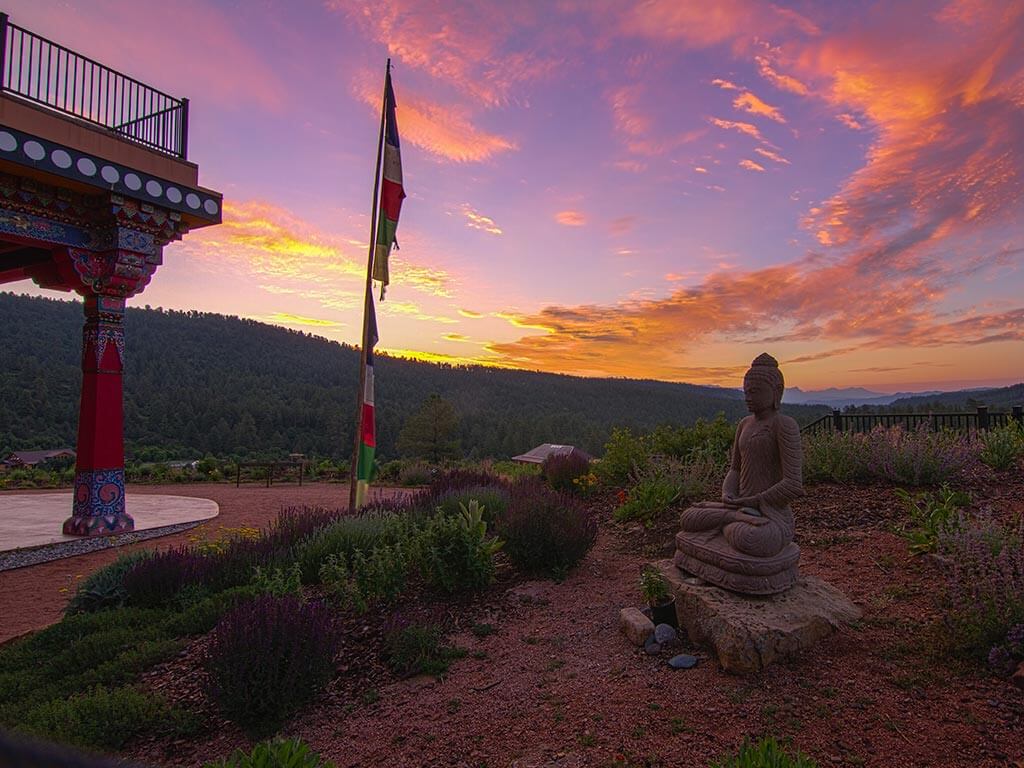 Photo credit: Josh Brownlee
Photo credit: Josh BrownleeLeaving the Retreat
Whatever you think a retreat is going to be like, it will probably be different. Most participants find it deeply refreshing and healing, often life-transforming. While spiritual truths can be seen every day of our ordinary life, the stillness and simplicity of retreat brings a wonderful and unique possibility for renewal. At the retreat’s end, we have instructions and insights that we can bring home. Our task is to return to our communities and bring a rekindled spirit of awareness and compassion to all we touch.